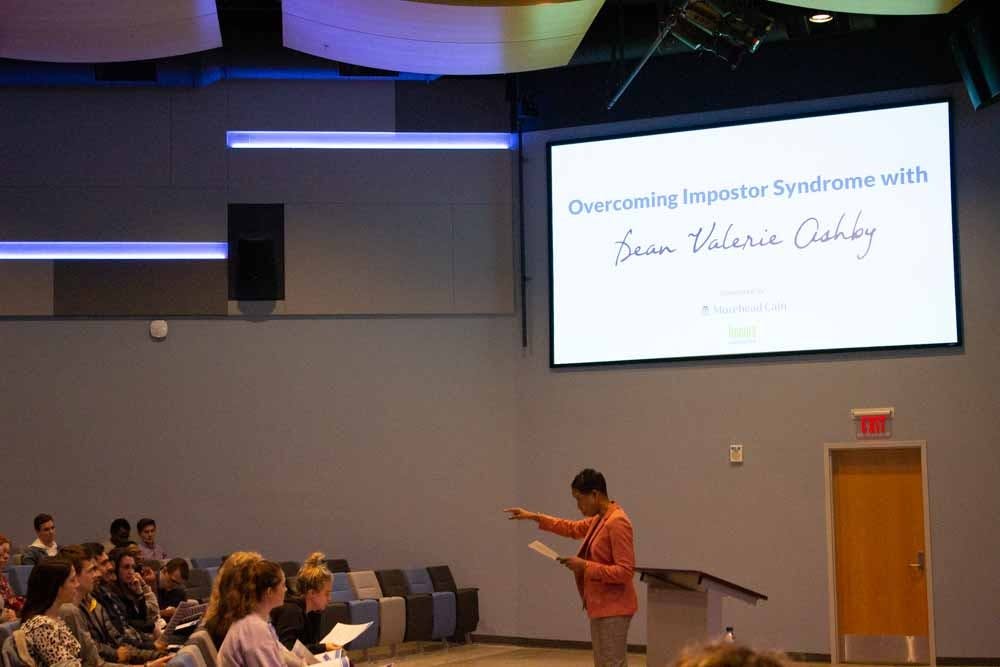The dean of Duke University’s Trinity College of Arts & Sciences led a discussion on impostor syndrome at UNC on Friday. Hosted by the Morehead-Cain Foundation and Honors Carolina, the event focused on feelings of impostor syndrome and strategies to overcome them.
Dean Valerie Ashby graduated with a Bachelor of Arts and Ph.D. in chemistry from UNC. She worked as chairperson of the chemistry department at UNC for three years before being appointed as a dean at Duke in 2015, where she leads 640 faculty members across 36 departments. She began with a definition of impostor syndrome.
"It’s that feeling that any day now, somebody, they — we don’t know who they are — are going to find out that you're not supposed to be where you are,” Ashby said. “It’s that feeling that maybe they made a mistake and I wasn’t as qualified for this as they thought I was.”
Attendees of the event raised their hands if they could relate to the statements Ashby made about the feelings impostor syndrome causes.
“It’s so pervasive that it’s that thing that you can hardly take any version of compliment without putting out a disclaimer,” Ashby said. “You know why? Because you don’t want to raise the expectation that you can do that thing twice.”
By the end of her descriptions, almost everyone had raised their hand.
A 2019 study found that 20 percent of participants said they experienced impostor syndrome. Additionally, 88 percent of people responded ‘yes’ to a Brigham Young University Twitter poll on impostor syndrome.
Ashby’s presentation was focused on a handout titled “Ten Ways to Stop Feeling Like a Fraud” by Dr. Valerie Young, a well-known speaker and expert on impostor syndrome. The tips included:
- Break the silence
- Separate feelings from fact
- Recognize when you should feel fraudulent
- Accentuate the positive
- Develop a new response to failure and mistake making
- Right the rules
- Develop a new script
- Visualize success
- Reward yourself
- Fake it 'til you make it



